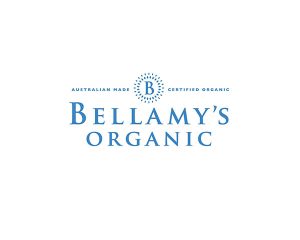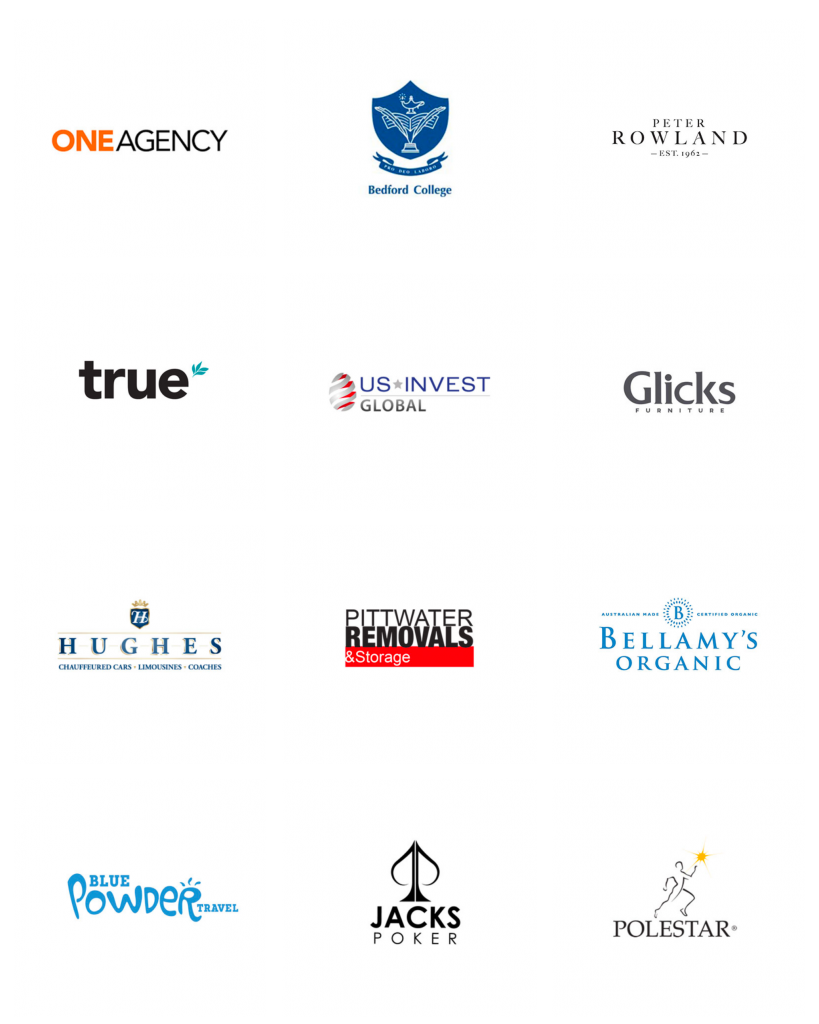#1 for Search Engine Traffic.
Don’t settle for second rate treatment from the big seo agencies! All you get is a #number and endless excuses why it’s not working for you.
Greg Gillespie is one of Australia’s top rated SEO consultants. Providing expert solutions in search marketing for Australian and international brands, since 2008. Get him on your team today and start getting the traffic you deserve!

- No Lock-in Contracts - Cancel Anytime!
This Is Helium SEO
Helium SEO provide first class search engine traffic, driving the right type of visitors to your site. We are more than just "rankings and reports" - we work with you to create higher sales and profits.
Helium SEO began in 2008, it’s founder Greg Gillespie is THE expert when it comes to finding new customers and building your revenues from search engine visitors.
SEO has changed a lot since the first Google algorithm changes, back in 2012.
There have been dozens of updates that have sent SEO-cowboys scrambling to recover lost rankings, so don’t let dodgy SEO destroy your business.
Find the best guy in the game and work with him to build your business the right way.
With over 30 years of “advertising and marketing” experience, on top of being a search marketing guru, Greg Gillespie is more than just another SEO guy.
Traffic + Conversions = Higher Profits.
That is the Helium SEO difference.
What Can An Expert SEO Consultant Do For You?
If you want to rank higher in Google, you need an expert SEO consultant. An experienced SEO consultant will take a look at your current website and marketing strategy, analyse it in depth, then provide you with a list of actionable recommendations that will improve your rankings and traffic.
Review your website.
- Review your website.
- Check the title tags, meta descriptions and page descriptions.
- Check the internal links of your website.
- Check the internal pages of your website.
- Check the external links to your website as well as those from other websites pointing to yours.
- Evaluate how fast it takes for a user to load all elements on each page of your site when compared to other sites in its industry or category (ie: travel sites vs fashion).
Review your competitors’ websites.
- Review your competitors’ websites.
- See where they are getting their content found, where they are getting their products found, and where they are getting their business found.
You want to take a look at what they are doing right, and then see where you can improve on that. If they are doing something well, make sure you’re also doing that same thing well. Opportunities can be discovered by looking into what your competitors are not doing well, and taking advantage of that discovery.
Analyse the best keywords for your business.
When you are looking for an SEO consultant, it is important to know what they can do for you. One of the most important things that they can help with is keyword research. This will help them find what your customers are searching for and how they can be found on search engines. This is key to any business because it allows them to reach those potential customers who may not have otherwise heard about their business or product.
Keyword research is especially important if you have a website or blog that focuses on one specific product or service as this type of content usually does not show up in any other part of Google’s algorithm (the secret formula that determines which sites appear first in search results). An expert SEO consultant will be able to take a look at your site, analyze it and see what pages are getting traffic from Google and why this might be happening so that they can then turn around and give recommendations based upon their findings – whether these recommendations involve improving existing content or creating new pages altogether!
Optimise your on-page SEO factors.
You will want to optimise your on-page SEO factors to ensure that your site is as user-friendly and search engine friendly as possible. Keywords should be used in:
- Title tags
- Meta descriptions
- Page body content (not just the main text but also video transcripts, image alt tags and file names)
Make sure your site is easy to navigate and adheres to usability best practices.
A good usability consultant can answer all of these questions, and many more.
It’s no secret that Google wants to deliver the best possible experience for users on its search engine. One way it does this is by making sure websites it ranks are easy to navigate and adhere to best practices for readability, accessibility, and usability. When you hire an expert SEO consultant like Greg Gillespie, he will make sure your site is easy to navigate and adheres to these standards so that Google keeps ranking you highly in their results pages (SERPs).
Improve your site’s technical SEO.
There are some basic things that you can do to improve your site’s technical SEO. These include:
- Checking the quality of your code. To do this, use W3C’s website validator to see if there are any errors or issues with your code and make sure you have a fast load time (ideally under 2 seconds).
- Fixing any errors or issues with your code if they appear in step 1 above (e.g., using Google Chrome or Mozilla Firefox browser extensions like CodeSniffer
Promote your website in search engines and other web-based directories.
- Listing your website on major search engines like Google, Bing and Yahoo! will help you gain recognition.
- Getting listed in a directory that is relevant to your business can also bring in traffic, but these listings require more effort and time to be submitted.
Run Google Ads campaigns along with SEO promotions to increase traffic, attract customers, and grow conversions and sales.
Run Google Ads campaign along with SEO promotions to increase traffic, attract customers and grow conversions and sales.
Online business owners can run Google Ads campaigns to promote specific products or services on their site. They can use the ads to generate leads, drive traffic to the site, increase sales or generate revenue for the company by driving targeted visitors and viewers to their landing pages.
An SEO expert will take a look at your current website and marketing strategy, analyse it in depth, then provide you with a list of actionable recommendations that will improve your rankings and traffic.
So, what does an SEO expert do? A lot of things! They will take a look at your current website and marketing strategy, analyse it in depth, then provide you with a list of actionable recommendations that will improve your rankings and traffic. And when it comes down to it, there are two main reasons why you should hire one – because they can save you time by doing everything for you or because they know exactly what they’re doing so that if something goes wrong (like Google changing their algorithm), then they know how to fix it quickly before any damage is done.
Our Growth Process
What sets your company up for incredible success, is defined by the Helium SEO proven 6-step business growth process.
Step 1:
Friendly Chat
After our first meeting if we find your business a good fit, then we proceed to discovery.
Step 2:
Discovery
After uncovering important data, we tailor a winning SEO strategy just for your business.
Step 3:
Strategy
When both parties are happy, we proceed to put our brilliance to work, to make you even happier.
Step 4:
Traffic
Nothing converts better than warmed up traffic. People trust companies that show up at the top of Google. We get you there.
Step 5:
Conversion
Prospects are drawn into your sales process and nurtured towards becoming your next customers.
Step 6:
Scale Growth
Once tested and proven, we then put our genius to scale - helping you take your business to the next level.
Case Studies
What Our Clients Have To Say...





Got SEO Questions? We Got SEO Answers!
If you want to succeed with search engine optimization (SEO), it’s important to ask the right questions and get the right answers.
In this section, we’ll talk about frequently asked SEO questions, including: What is a keyword? What are SERPs? What’s the difference between SEO and SEM? What are organic rankings? Does Google promote paid ads higher than organic listings? Does anyone know the Google algorithm secrets? Does Google like or hate SEO? Does Google like SEO consultants or hate them? What is considered good quality content? How do you earn links?
Frequently Asked SEO Questions
A keyword is a word or phrase that people search for online.
Keywords are what you want to rank for, and they’re the basis of your SEO strategy. Your keywords should be broken down into 2 categories: head terms (more general terms) and long tail terms (more specific, more niche). Both categories should be included in your site’s content.
The search engine results page, or SERP for short, is the page of links to websites that match your query. If you’re searching for “how to bake a cake”, then when you click on one of those results they’ll take you to a website with information about baking cakes!
SERPS can also be used in other ways. For example:
A company might want their website placed higher up in the SERPs so that people will see it first when they search for things like “insurance” or “accountants”. This is called SEO (Search Engine Optimisation), and is something we do all the time at Helium SEO.
You may have seen that Google has added an image above its list of results from time to time – this happens if there’s something visually eye catching about one result compared to another (like an infographic instead of lots of text).
SEO is about getting the most traffic for your website, SEM is about getting the most money for your website.
SEO is an acronym that stands for Search Engine Optimization, while SEM stands for Search Engine Marketing. Although these two terms are often used interchangeably, they refer to different aspects of online marketing. SEO focuses on optimizing your site and content to get more organic (unpaid) traffic from search engines like Google or Bing—this can help you increase visibility in search results and boost user engagement with your website. By contrast, SEM focuses on paid advertising across a range of platforms including social media sites like Facebook and Twitter as well as news publishers like Yahoo! Finance or CNBC that feature ads alongside their articles.
Organic rankings are the results of a search engine that are not paid for. These rankings are based on the quality of your website, and its content. If you have good content on your site, then it will rank higher in organic search results.
Organic rankings also depend on how many people visit your site, and where they’re coming from (links). The more people who visit your site, the more likely it is that Google will see that as a signal of quality (and thus raise your ranking).
No, Google does not promote paid ads higher than organic listings. The main reason for this is that paid ads are a way to get your brand in front of the right audience. However, organic listings are also a way to get your brand in front of the right audience. Therefore, you should use both paid ads and organic listings when trying to rank high in search results on Google.
You’re right that no one knows the Google algorithm secrets. That’s because Google keeps their algorithm secret, and they’ve never released it or a list of ranking factors. They also don’t release their list of penalties or best practices for SEOs to follow.
However, there are some things we can guess about the Google algorithm from looking at trends in changes over time and by analyzing the data that exists online today. It’s possible (and often helpful) to get a sense of how well your content is doing with tools like SEMrush or Ahrefs, even if you’re not familiar with keyword research techniques like keyword difficulty score calculations or using Google Correlate to find trending queries based on seasonality patterns over time.
Google is a business and businesses want to make money. If you’re using SEO methods to get more traffic to your site, it makes sense for them not only to NOT hate it, but actually encourage it. One of the reasons why people use SEO is because they think it will help them rank higher in Google’s search results—and if you rank higher on Google, then that means more people are going to see your website when they search for certain keywords. This means more clicks/views/visits/etc., which means more money for Google, as having great websites listed in the search results, actually makes Google look better. After all, Google is a content aggregator not a content creator – you as a website owner are their best asset and getting that great content to rank highly is what they want!
Google is not a fan of SEO consultants.
SEO consultants are not allowed to rank for their own websites, and neither are they allowed to rank for their clients’ websites (this includes their own clients). This is because Google sees it as an attempt at “black hat” or manipulative SEO tactics.
SEO consultants cannot manipulate the algorithm, because they don’t have access to the algorithm and therefore cannot manipulate it. However, if you want your website on page 1 of Google search results then hiring an SEO consultant who knows what he/she is doing will get you there faster than doing it yourself.
White hat SEO is driven by long-term strategies and ethical practices. It’s a method of optimizing content so that it can rank highly in the search engines without breaking Google’s guidelines. White hat SEO is also known as “organic SEO,” because you are allowed to use organic methods to improve your website rankings. These methods include creating great content for users, building backlinks and gaining social media traction for your site.
Black hat SEO is an unethical practice used to manipulate search engine results in order to promote websites or increase ad revenue from advertisers who pay per click on ads listed in the SERPs (search engine results pages). Black hat tactics include keyword stuffing, cloaking, doorway pages (pages designed only for search engines), link schemes and cloaking where a URL looks different than what users see when they visit it—which could lead them into malware or other dangerous sites instead of yours!
Paying for links is bad because it is not natural.
It is against Google’s rules.
It can be expensive, and even if you find a source that offers affordable backlinks, those links may not last long anyway.
It can negatively affect the reputation of your site by lowering its authority in the eyes of Google and other search engines (Google will penalize sites with unnatural or low-quality links).
There are several ways to earn links. You can write useful content and post it on social media. You can also create links to other pages that are relevant or not, depending on the circumstance.
Here’s an example: If you’re a plumber writing about what makes for good plumbing tips for homeowners, you might link to another page on your website that provides more information about kitchen drain cleaning or bathroom sink repair kits. In this case, your link would be relevant because it’s related to plumbing and therefore helpful for readers looking into buying products from your site. But if you’re not selling these items but rather just giving general advice about home repairs in general (and perhaps including some links), then there’s no real incentive for anyone else in the industry who happens upon this piece of content—except maybe Google itself—to want to link back!
Good quality content is the kind of content that has been well written, researched and edited. It’s also relevant to the topic it’s covering, which is why it can’t just be a rehash of other content on the internet. In addition to being targeted appropriately for its audience, good quality content should be unique and informative.
When someone reads your article on “How to Do SEO” or “Why You Need SEO in Your Business,” they should walk away from that piece feeling like they learned something new about SEO or getting targeted traffic for their business.
Backlinks are the most important part of SEO. In fact, it’s what people use to find all sites on the web. Without backlinks, there would be no way for people to find you and your business.
The answer is simple: you need content! If someone sees something interesting on your website and they want more information about it, they’ll go back through their history and look at other websites they’ve been on recently. They’ll then click on one of those links that took them to another site—and who knows where this journey will end? But if all of these destinations have similar-looking content pieces (and are also linked together), it’s easy for people to get lost in the shuffle or get distracted by something else entirely.
The answer is no. The number of links you have pointing to your site is not as important as the quality of those links.
You can think about it like this: imagine that a website with a lot of traffic, but no authority or popularity in the eyes of search engines, was linking to your site. That wouldn’t be very helpful because that website doesn’t have much credibility with Google and other search engines. On the flip side, if someone with a lot of authority were to link to you, then it would be beneficial because they are seen as an influencer on the web and their opinion matters!










